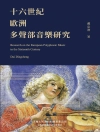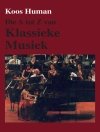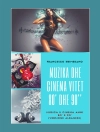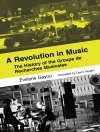The Codex Buranus, compiled, in all likelihood, in South Tyrol in the first half of the thirteenth century, has fascinated modern scholars and performers ever since its rediscovery in 1803. Its diverse range of texts (some famously featuring in Carl Orff’s
Carmina Burana) and music gives testimony to the intensely vibrant, plurilingual, and multicultural milieu in which the Codex Buranus was compiled, but poses a challenge to modern users. Perhaps more so than many other medieval manuscripts, it is an artefact which demands, and benefits from, an interdisciplinary approach.
The chapters here, from scholars in a variety of fields, enable the less well-known aspects of the Codex Buranus; textual, musical, and artistic; to receive greater scrutiny, and bring new perspectives to bear on the more thoroughly explored parts of the manuscript. Making accessible existing discourse and encouraging fresh debates on the codex, the essays advocate fresh modes of engagement with its contents, contexts, and composition. They also examine questions of its reception history and audience.
TRISTAN E. FRANKLINOS is a British Academy Postdoctoral Fellow at the University of Oxford, and a Junior Research Fellow of Trinity College, Oxford. HENRY HOPE has taught at the universities of Oxford and Bern; his research centres on the musical aspects of Minnesang.
Contributors: Gundela Bobeth, Charles E. Brewer, Carmen Cardelle de Hartmann, Albrecht Classen, Johann Drumbl, Tristan E. Franklinos, Peter Godman, Henry Hope, Racha Kirakosian, Heike Sigrid Lammers-Harlander, Jonathan Seelye Martin, Michael Stolz, David A. Traill, Kirsten Yri.
Зміст
The Codex Buranus: A Unique Challenge – Tristan E. Franklinos and Henry Hope
A Modern Reception History of the Codex Buranus in Image and Sound – Kirsten Yri
Parody in the Codex Buranus – Carmen Cardelle de Hartmann
Satire in the Codex Buranus – David A. Traill
‘Artes amatorie iam non instruuntur’: Learned and Erotic Discourse in the Carmina Burana – Albrecht Classen
Classical Learning and Audience in the
carmina amatoria: a Case-Study on CB 92 – Tristan E. Franklinos
Rape, the Pastourelle, and the Female Voice in CB 185 – Jonathan Seelye Martin
Re-Thinking the Carmina Burana III: The Poetry of Peasants – Peter Godman
Predestination and God’s Grace: The Salvific Architecture of the Religious Songs in the Codex Buranus – Racha Kirakosian
Revisiting the Plays of the Codex Buranus – Johann Drumbl
Revisiting the Music of the Codex Buranus – Heike Sigrid Lammers-Harlander
Locating the Codex Buranus: Notational Contexts – Charles E. Brewer
Plurilingualism in the Codex Buranus – an Intercultural Reconsideration – Michael Stolz
Compilation, Contrafacture, Composition: Revisiting the German Texts of the Codex Buranus – Henry Hope
Afterword –
multiformis armonia, scolaris symphonia – Gundela Bobeth
List of Incipits
List of Manuscripts
Bibliography
Про автора
TRISTAN E. FRANKLINOS is a British Academy Postdoctoral Fellow at the University of Oxford, and a Junior Research Fellow of Trinity College, Oxford.












